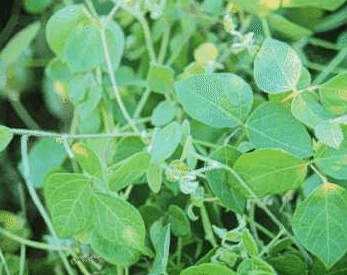With the revival of our inherent therapy of Ayurveda, one herb that is often sought after and largely inquired is ‘Shatavari’ or Asparagus. It is a decorative herb that adds to the beauty of gardens. Yet, at the same time, it is gifted with distinguished medicinal properties of being potent, energizing and revitalizing and greatly invigorating.
The Latin name of the herb is ‘Asparagus racemosus’ and in the local language, it is known by the name ‘Shataver’. Some of the Sanskrite synonyms denote the characteristics of the herb as for e.g. Shatvirya i.e. it is cold in potency, Atirasa i.e. it contains juice and Shatmooli i.e. it has a cluster of roots.
The herb grows in the form of a creeper with curved thorns similar to the nails of a tiger. It flowers in the months of September of December and after that fruit is borne. It is small, rounded and red coloured when ripe. The roots are whitish and in the form of clusters. Rhizome is the part of the herb that is used for medicinal purposes.
Properties
Asparagus is heavy and slimy by nature and cold in potency. The taste is a combination of sweet and pungent and the after taste is sweet.
Uses
The rhizome is extracted and is made to dry in shade. Then the outer integument is removed. It is then further dried and pounded to make into powder form, or fresh juice is separated from the same. The recommended dose of Asparagus powder is 3 to 6 grams and that of the juice is 10 to 20 ml (as per Ayurvedic texts).
Action on Body Humors: asparagus being slimy, sweet and clod, tends to cause a decrease in the air and fire humors of the body.
Good for your Heart: this herb is believed to be virtuous for the heart. A regular intake in the form of powder or juice is recommended for heart patients. This is because it is believed to overall improve the functioning of the vital organ. It is also quite beneficial if you are suffering from high blood pressure. According to Ayurveda, in this malady, there is a distortion in the air and fire body humors. Shatavari has a tendency to cause a reduction in both these ‘doshas’
Boon for Lactating Mothers: Asparagus is perhaps one of the best known herbs that cause an increase in milk production. Medicinal preparations like ‘Shatavri Ghrita’ are generally prescribed for pregnant women and lactating mothers.
Good for Eyesight: owing to its distinctive properties, Shatavari is said to enhance the eyesight. The herb is therefore highly beneficial for young children who are most prone to vision defects. A spoonful of powdered herb is to be mixed into half a spoon honey and it to be taken twice daily along with warmed cow’s milk. It would also be quite beneficial as a brain tonic.
Cure for Impotency: Pound one teaspoon approx. the herbs Shatavari and Ashwagandha, (stated earlier in the series) and a decoction is to be prepared by adding half a cup each of milk and water. When water evaporates, the mixture is to be removed and allowed to self –cool. This is to be taken along with sugar or honey added to it.
Soothing and Calming Herb: Shatavri is soothing for the brain and is an efficient ‘brain tonic’. The medicinal formulations of the herb are recommended in much brain – related ailments.


